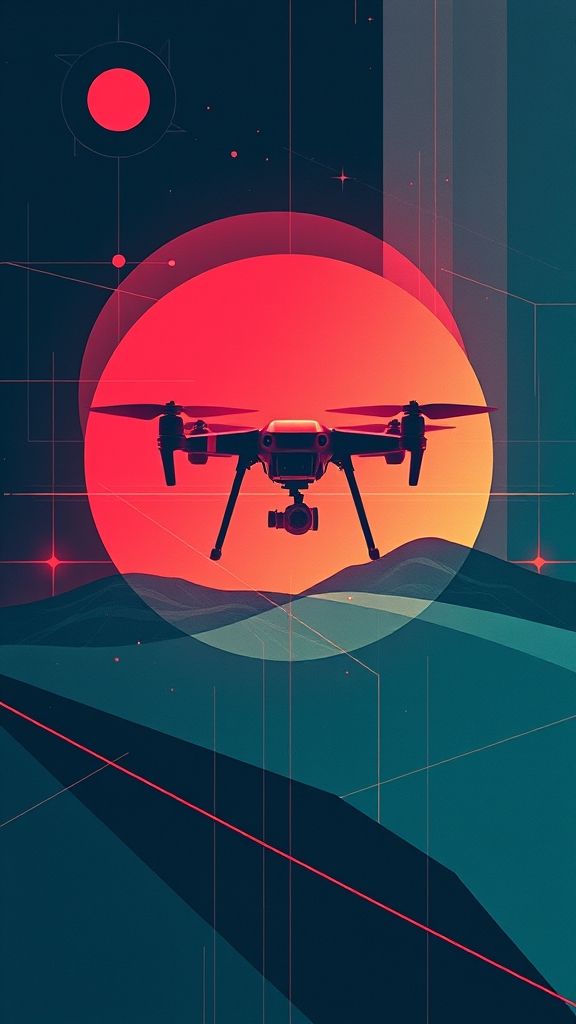Germany Unveils 563 Million Missile Deal As Air Defense Plans Take Shape
Germany’s decision to approve $563 million for the development and procurement of MBDA’s …
30. September 2025

French Drone Maker Harmattan AI Aims for $1 Billion Valuation Amid Defense Boom
In a significant turn of events, Paris-based defense drone startup Harmattan AI is reportedly seeking a staggering $1 billion valuation in its latest funding round. This ambitious ask comes just 18 months after the company launched, marking a remarkable trajectory that signals a fundamental shift in how Western militaries are approaching unmanned systems procurement.
The European Defense Industry Association (EDINA) invested €946.3 million ($1.03 billion USD) into European defense startups in the first half of 2025 alone – a 26% increase compared to the same period in 2024. This surge in investment reflects a strategic push by European nations to develop and deploy their own domestic military technology, particularly in response to evolving security threats.
The European Union’s defense strategy emphasizes the importance of building a robust and integrated defense industry that can respond quickly to emerging challenges. Harmattan AI is part of this broader trend, developing three core products: a training-focused system, a surveillance drone, and an interceptor drone designed to neutralize incoming weapons.
These systems are being marketed as the “European Anduril,” with Harmattan positioning itself as a leader in the development of unmanned systems for military applications. The company’s CEO has stated that delivery rapid production and proven performance to its customers, rather than pursuing lengthy development cycles. This approach aligns with the needs of modern militaries, which often require quick deployment and flexibility in response to emerging threats.
The French defense ministry ordered 1,000 drones from Harmattan for delivery by year’s end. Earlier this month, the company announced a more substantial contract: delivering 3,000 systems as part of a “multi-million programme” with the UK Ministry of Defence for “near-term deployment to meet urgent operational needs.” These contracts represent significant milestones for Harmattan, which has already demonstrated its ability to secure major orders from two major NATO militaries.
To meet demand for its drones, Harmattan is planning to build a French facility next year capable of producing 10,000 drones monthly. Additional manufacturing sites are planned for Germany and the United States in 2026, positioning the company as one of the leading manufacturers of unmanned systems globally.
However, this level of production capacity raises concerns about scalability and execution. Can a startup really deliver such high volumes of drones while maintaining quality and reliability? The defense industry is notorious for its complex supply chains and logistical challenges, making it difficult to scale up production quickly and efficiently.
Comparing Harmattan AI to the US-based drone company Anduril reveals telling similarities. Both companies are betting that modern military procurement needs speed and volume over perfection, particularly for expendable systems like interceptor drones. However, the success of these startups will depend on their ability to execute on their production targets and deliver high-quality systems to their customers.
The bigger question is whether American investors and partners view this as a strategic opportunity or a potential competitor to domestic defense tech champions? As Harmattan continues to grow and expand its operations, it remains to be seen how the US defense industry will respond to this new entrant in the market.
Harmattan AI’s rapid rise has significant implications for the global defense industry. If the company can deliver on its production targets and provide high-quality systems to its customers, it could fundamentally reshape European defense manufacturing. However, if it fails to meet these expectations, it may also reveal deeper structural issues in the industry.
As the US defense industry grapples with scaling up production and meeting emerging security threats, Harmattan AI’s trajectory offers a valuable lesson: speed, flexibility, and innovation are key to success in this rapidly evolving landscape. Whether Harmattan can deliver on its ambitious plans remains to be seen, but one thing is certain – the company has already made a significant impact on the global defense industry.
The rise of European defense technology reflects growing concerns about the reliability and availability of US-made equipment, as well as a desire to reduce dependence on foreign suppliers. Harmattan AI’s CEO Mouad M’Ghari has stated that the company is committed to working closely with its customers to understand their needs and deliver solutions that meet those requirements.
This approach aligns with the principles of the European Defence Fund, which aims to promote cooperation and collaboration between member states in the development of defense technology. As Harmattan AI continues to grow, it will be watching with interest to see how other startups and established players respond to this new entrant in the market.
The French government’s decision to order 1,000 drones from Harmattan represents a significant milestone in the company’s growth trajectory. The contract is part of a broader push by the French government to develop and deploy its own domestic military technology, including unmanned systems for surveillance, reconnaissance, and intercept missions.
Harmattan AI’s rapid rise has significant implications for the future of European defense manufacturing. As the company continues to navigate the complex challenges of the global defense industry, one thing is certain – it will be watching with interest to see how other startups and established players respond to this new entrant in the market.